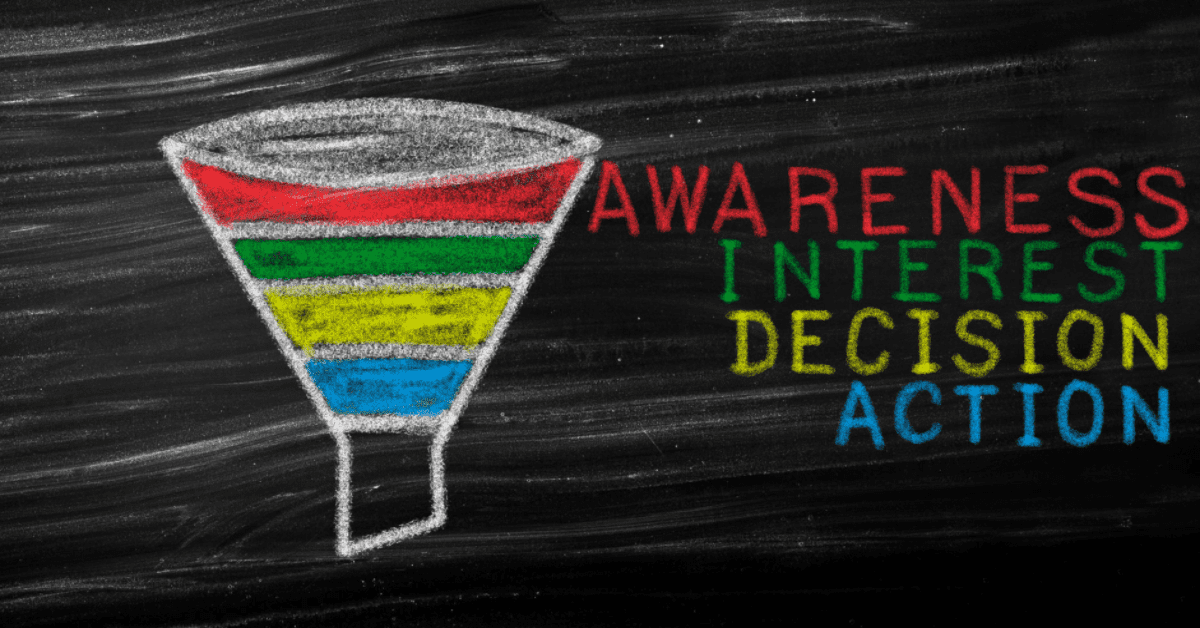In the era of digital marketing, companies compete for customer attention. With crowded emails and promos, potential customers have little time for cold calls and irrelevant marketing content. That is why digital marketers prioritise lead generation.
To make this article easy for you to understand, we have outlined important aspects of Digital Lead Generation.
What is a Lead?
A lead in sales refers to contact with a customer, often known as a “prospect.” The definition of “lead” may differ depending on the company. For some businesses, a “lead” is a contact who has already been assessed to be a customer. For others, a “lead” is ready to be converted to sales. However, the purpose of a lead to become a future paying client is consistent across definitions.
A lead is someone who has expressed interest in your business. They might have responded positively to a social media post, for instance. This increases their likelihood of them, participating in following marketing attempts.
Marketing on social media

Social media platforms like Facebook, Twitter, and Instagram have millions of users all over the world. Having a presence on these platforms allows your organization to interact with its users. Undoubtedly, you may not want to use them all. However, it’s crucial to publish frequently and engage with clients on social media.
It can be amazingly simple. Firstly, you can easily create a business page on Facebook, for example. Then, distribute this page to your other marketing channels. For instance, to your website, emails, or traditional advertisements. This will drive traffic to your page. Also, this will help you increase a consumer’s interest in your company. Therefore, when someone likes or shares your post, they are converted into a lead. Let’s look at some most common methods to increase your interaction via social media:
- Webinars
Simply put, a webinar is an online seminar. It enables your firm to centralize leads and announce new products or services. Webinars are an excellent way to showcase expertise and share information with interested consumers.
Spending time talking to customers and addressing their questions can show them they are well cared for. This can potentially lead to a sale.
- Blogging
Blogging is an excellent approach to connect with potential customers. If you have relevant information to share with others, a blog is an excellent way to do it. Blogs do not have to be lengthy. They can be brief but informative. Ideally, you are teaching others in an interesting or straightforward manner.
- Email Promotion
Next, is email marketing. It raises brand awareness by getting your email message into the inboxes of potential new customers. Simply put, the more consistently you communicate with email subscribers, the more likely they are to think of your company.
- Influencers
Influencers are people who have a huge following on their social media profiles. They have developed a relationship with people through regular posts. Therefore, allowing them to influence their purchases.
What is Lead Generation?
From the sections above, we can conclude that a lead is someone who has expressed interest in your business. They may have interacted with your brand in some way. This increases their likelihood of participating in subsequent marketing efforts.
So, what exactly is lead generation in the context of digital marketing? It is the process of identifying potential clients and nurturing their first interest in a product or service. Lead generation’s overall purpose is to convert the interested party into a buyer. This will, further, raise your company’s sales.
But first, why exactly does your company require lead generation? Carry on reading to find out more.
Your company requires an effective lead generation plan to help you target your audience. It will help you build your business and increase revenue. In essence, lead generation provides traffic to your website, where leads can be converted into engaged consumers.
You may encourage potential clients to engage with your business through various lead generation strategies. The more people who come across your business through any marketing strategy and express interest, the more sales you will make.
Winning with these Lead Generation Methods
Ways to market your business are an important aspect of the complete guide to lead generating. If you want to expand your growth, you must have a marketing strategy in place. However, the marketing landscape is continuously changing, with innovative approaches and methods for marketing your brand. We will look at the various strategies you may use to market your business and produce more leads in the sections below.
- SEO (Search Engine Optimization)
We will start with SEO, or search engine optimisation, which is the baseline to begin your digital marketing efforts with. SEO is the practise of enhancing your website’s visibility on search engines. The better the SEO for your website, the higher it will appear in search results. Read everything you need to know about getting your SEO strategy right in our detailed blog post here.
- Content
To truly catch the attention of individuals reading, it must be entertaining and valuable. Writing a blog is an easy method to add content to your website. Interviews, essays, films, photos, and graphics are all examples of content marketing. Your content should be relatable, so that potential buyers appreciate associating themselves with it. At the same time, the main goal is to generate interest in your company and lead to a call to action. Read more about how content marketing can help your business in our detailed blog post here.
- Thought Leadership
Another strategy to market your company is to author articles. Although part of your content strategy, it stands out because of its quality to yield results. Especially, if you are a business that needs to create a new category or establish itself as an authority in its industry. Well-researched and data-driven thought leadership can bring potential customers to you for knowledge and guidance. Furthermore, you can ask them to create an account, subscribe to a newsletter, or follow you on social media.
- Email Marketing
Email marketing was one of the first methods of marketing for businesses, and it still remains important. It can foster relationships and increase brand awareness among new and repeat users. You may send out personalised material to your customers via email. A consistent and well-timed email will keep you at the forefront of your clients’ minds. Especially, given how frequently people check their emails.
Secondly, sending emails will encourage your clients to return to your website or contact you. Because they are responding to your email, these are prospective leads. Additionally, for promoting a new product or service, this is an effective way to persuade your customers.
- Social Media
One of the most effective ways to market your business is through social networking. Start by building a strong profile on social media platforms that are relevant for you. Your profile is sometimes the first impression that someone has of your company, so make it count.
It must include contact information like as phone numbers and email addresses. These are important because customers do not want to look for them. You can also utilise your profile to advertise your website and content.
The secret to success is to create clickable and compelling content. Your audience can interact with your business online. The click rate, engagement, and quantity of content posted are important factors.
You may provide incentives through your social media sites, like a discount.
Having explored various ways to utilize leads for marketing your company, let’s delve deeper into how it all ties back to lead generation and digital marketing!
How Can You Make the Most of Lead Generation?
“How can I get the most out of my digital marketing?” is a question we frequently hear from clients. In this definitive guide, we will go over the most common types of lead creation, and how you might maximise their effectiveness.
Effective Lead Generation is Online, Inbound, and Funnel-based
Though some businesses may still consider offline strategies like in-person events, phone calls, and direct mail, modern lead generation is often linked with “digital leads. Read more in our blog The Ultimate Guide to Digital Marketing Funnel Design.
Online lead generation is frequently easier and more profitable than offline techniques. It is also smarter because it directs your attention to what stage in the buying journey your prospects are at.
- To begin, keep in mind that your website is critical to lead generation success. This is frequently the first impression potential prospects receive of your company, so it must be clean, speedy, and mobile-responsive.
- Second, efficient lead creation necessitates understanding the distinction between outbound and inbound marketing. Outbound marketing actively seeks customers and is often associated with paid ads, while inbound marketing aims to have clients find you. Prioritize the latter for sustainable marketing efforts.
- Finally, you should comprehend the modern buyer’s path. This is easily visualised using a lead generation funnel.
What precisely is a Lead Generation Funnel?

A lead generation funnel is a method of determining who is at what step of the buying process. It’s a systematic way of guiding your audience through stages until they ideally make a purchase from you. You can read more in our article on Master the Funnel to Ace Performance Marketing!
For example, your website, blog, social media post, or advertisement may build awareness for a potential consumer. This is your first official engagement. They may then like or follow your blog. This would advance them to the next stage of the trip. The ideal outcome is a sale and an engaged customer. The digital lead funnel aids in the creation of this journey.
The Stages of a Lead Generation Funnel
We at groSamriddhi, follow the following four step lead generation funnel:
- Awareness: Figuring out how your brand will be the first to be perceived by potential customers is key. Additionally, how you will raise awareness of your brand among them. Brand perception plays a key role here.
- Interest: Customers progress to the next level, if they are aware of your brand and who you are. This is when they begin to get more interested in the brand. They may start following you on social media or subscribe to your newsletter, for instance. Putting out quality content that is focused on solving their needs is critical at this stage.
- Desire: Typically, this happens when the prospective customer has expressed a desire to purchase or engage more deeply. People who have downloaded content or indicated an interest after being engaged could fall into this category. They are higher on the scale than those who showed no interest. Remember though, not all potential consumers will be eager to buy from you right immediately. They can be seeking for additional information right now, but they are not ready to buy. They are, nonetheless, still valuable and must be engaged. As a result, you can stay in touch with them through marketing, such as social media or email marketing, or by calling them every few months to check in.
- Action: The leads you have interacted with and nurtured are ready to convert at this stage. This may take different forms. You may need to help them identify the right products or services to meet their needs. This could entail close collaboration with your sales team. Know more about this in our blog post on collaborating marketing and sales efforts here. You could also consider upselling or cross-selling opportunities for repeat customers. Either way, make each customer feel important and ensure they receive the best experience.
Retaining these consumers and ensuring their return in the future aids in the development of a consistent revenue stream.
If you know how to do it, creating a lead generation funnel is simple. Furthermore, it is essential if you want potential leads to convert into guaranteed sales. If you want to know more about funnel design in detail and how to optimise it for your business to drive performance read our blog posts –Ultimate Guide to Digital Funnel Design- Funnel Marketing and Master the Funnel to Ace Performance Marketing!
The Importance of Lead Generation
Lead generation is not a new procedure, but it may have a significant impact on your organisation. Primarily, a lead is someone who has expressed an interest in your company and can become a paying customer.
It is your responsibility to engage and convert the lead into a sale. As a result, lead creation leads to revenue growth for your company. Lead generating tactics include, among others, content marketing, SEO, and social media marketing. We hope that this guide has helped you in understanding the various advantages of lead generation and how to get started.
Additionally, you can consult an external consultant for the purpose. They’ll thoroughly research your brand to help identify high-quality leads that will convert into sales.




